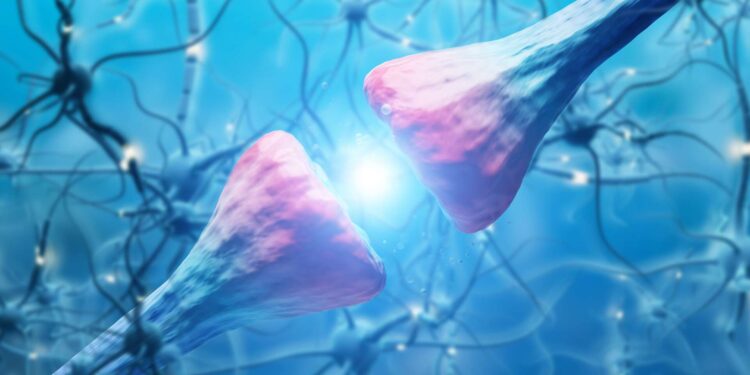A major advance in Alzheimer’s disease research has shed light on a potential treatment strategy, focused on repairing damaged synapses using the Kibra protein. This approach opens up new perspectives for restoring memory affected by this degenerative disease, without directly targeting the toxic proteins accumulated in the brain.
This will also interest you
(ON VIDEO) A revolutionary implant to prevent Alzheimer’s disease Alzheimer’s disease progressively attacks neurons, first causing memory problems…
While existing treatments for Alzheimer’s disease primarily focus on slowing the progression of the disease, a recent study published in JCI offers a revolutionary method. It aims to restore lost memory by acting on damaged synapses. This research highlights lightlight the potential of Kibra protein in the fight against dementia and paves the way for more effective targeted treatments for patients.
Would it be possible to detect Alzheimer’s disease in a drop of blood? This is the revolutionary method that Julie Kern talks to you about in this episode of La Santé sur Listen. © Futura
The central role of the Kibra protein
Alzheimer’s disease is traditionally associated with the accumulation of toxic proteins, such as tau and beta-amyloidbeta-amyloid. However, the newly conducted study takes a different approach, focusing on the repair of synapses, the connection points between neurons essential for memory. The work is based on the Kibra protein, identified as a key player in the formation of memories at the synaptic level. Brains affected by Alzheimer’s show a deficiency in Kibra, highlighting its importance in the disease.
By exploring how reduced Kibra levels impact synaptic signaling, researchers discovered a mechanism that can be targeted to restore synaptic function. Preliminary results indicate that high Kibra levels in the cerebrospinal fluid, but low in the brain, are linked to gravitygravity of the dementiadementia. Furthermore, a surprising correlation was observed between the increase in tau proteintau protein and Kibra, highlighting the potential of Kibra as a biomarker of synaptic dysfunction and cognitive decline.
Towards a new therapy based on Kibra
The next step in the research was to test the effectiveness of a shortened functional version of Kibra in mouse models for Alzheimer’s diseaseAlzheimer’s disease. The results were promising: this protein not only reversed memory impairment, but also restored synaptic function without addressing the problem of toxic tau accumulation. This suggests that Kibra could be used as therapytherapy to improve memory after the onset of memory loss, offering new hope to patients.
The discovery of the therapeutic effect of Kibra represents a turning point in the fight against Alzheimer’s disease. It complements current approaches by offering a strategy targeted at the repair and improvement of synapses, essential for restoring cognitive function and memory. This advancement could have a significant impact in the future, marking a step forward in the development of more effective treatments for those affected by this devastating disease.



